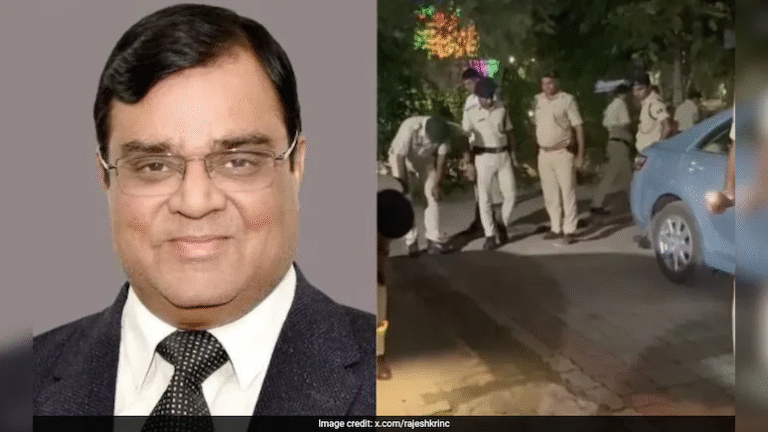
Waqf Amendment Bill Live Updates: Union Home Minister Amit Shah has defended the Waqf (Amendment) Bill, 2024, amid strong opposition criticism, stating that there will be “no interference in Muslim religious matters.” Shah clarified that the bill aims to streamline the management of Waqf properties and is not intended to interfere with religious practices.

Waqf Amendment Bill 2024: Key Highlights
- The Waqf Amendment Bill, 2024, was tabled by Union Minority Affairs Minister Kiren Rijiju in the Lok Sabha on Wednesday.
- The bill aims to address administrative loopholes in the management of Waqf properties, ensuring better governance and accountability.
- Shah stated, “Waqf means donation for religious charities in the name of Allah. Donations can only be made from one’s own property, not government property.”
- He emphasized that the bill does not seek to appoint non-Muslim members to the Waqf boards and that “no interference in Muslims’ religious matters” will occur.
Opposition’s Criticism and Concerns
Several opposition leaders, including Rahul Gandhi and Asaduddin Owaisi, have voiced strong opposition to the Waqf Amendment Bill, alleging that it violates constitutional rights and targets the Muslim community.
Rahul Gandhi’s Reaction:
- On his official X account (formerly Twitter), Gandhi stated that the bill is a tool aimed at “marginalizing Muslims and usurping their personal laws and property rights.”
- He argued that the legislation sets a dangerous precedent that could be used to target other communities in the future, calling it “an attack on the Constitution by the RSS, BJP, and their allies.”
Asaduddin Owaisi’s Statements:
- The Hyderabad MP described the bill as a “declaration of war against the largest minority in this country.”
- He emphasized that the bill goes against the constitutional provision of equality of all religions, and highlighted that while non-Muslims can be part of the Waqf Board under the new law, this is not allowed for other religious bodies.
- Owaisi also raised concerns about how the state and central boards will now include non-Muslims, stating, “Who will defend my interest if I cannot depend on the State or Central Waqf Board?”
- Jokingly questioning the criteria for determining a practising Muslim, he remarked, “If he has a beard, will he be considered a practising Muslim, or should he be clean-shaven?”
Why Is the Waqf Amendment Bill Facing Backlash?
The bill includes several contentious provisions that have sparked nationwide criticism:
- Appointment of Non-Muslims:
- The bill allows the appointment of at least two non-Muslim members to the State Waqf Boards, a significant change from the earlier structure.
- Power to District Collector:
- The bill grants the District Collector authority to determine if a disputed property is Waqf land or government property.
- Abolishing ‘Waqf by User’:
- The concept of “Waqf by user” has been removed, raising concerns about historical Waqf properties losing their status.
- Mandatory Registration:
- All Waqf properties must be registered on a central database within six months of the law’s enactment.
- Removal of Tribunal’s Final Authority:
- The tribunal’s decision will no longer be final, allowing further legal scrutiny of its rulings.
Amit Shah’s Defense of the Waqf Bill
During the debate, Amit Shah addressed the criticisms directly, stating that misinformation is being spread by opposition MPs for “political reasons.” He reiterated that the bill’s primary purpose is to ensure transparency, accountability, and efficiency in the management of Waqf properties.
Shah also mentioned that the bill has no intention to interfere in religious practices or mosque management, asserting that the “Board and Council are separate from Islam.






